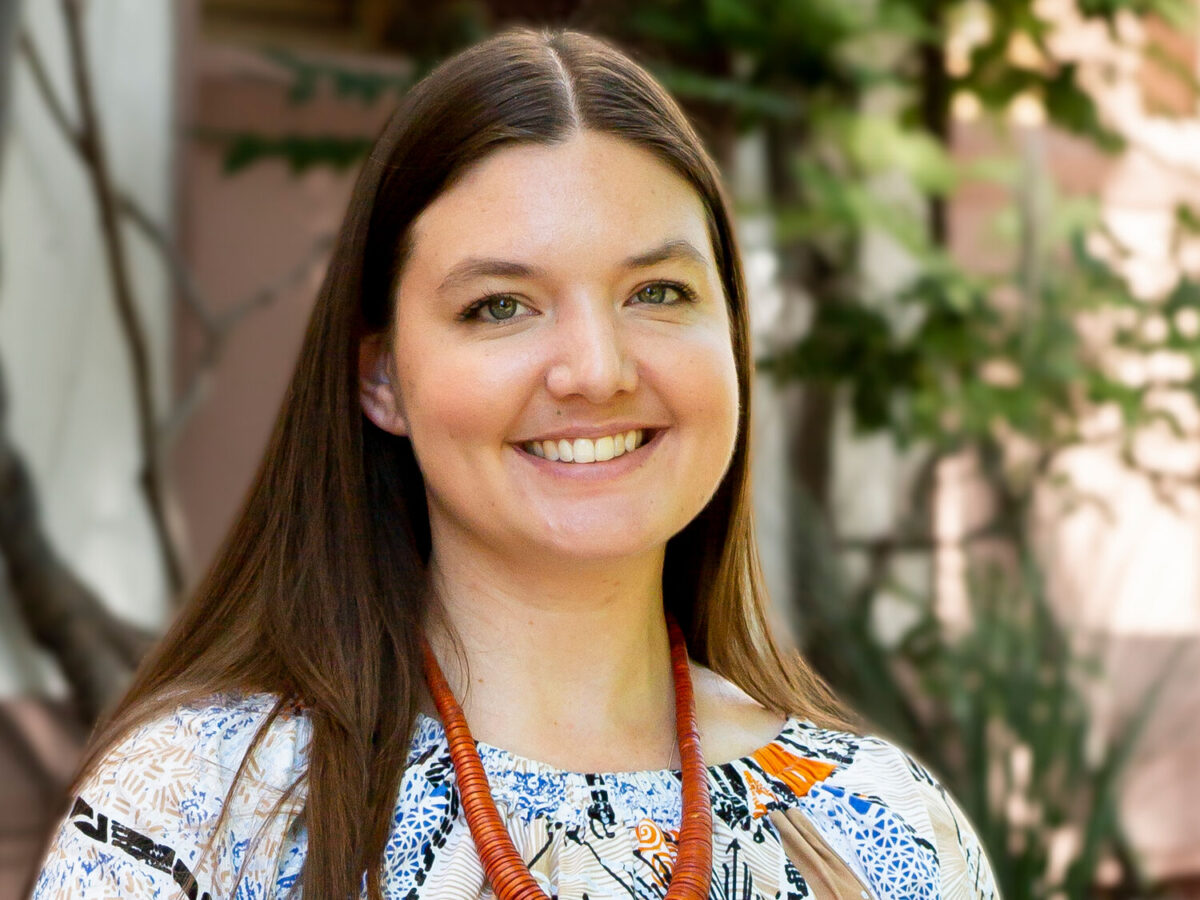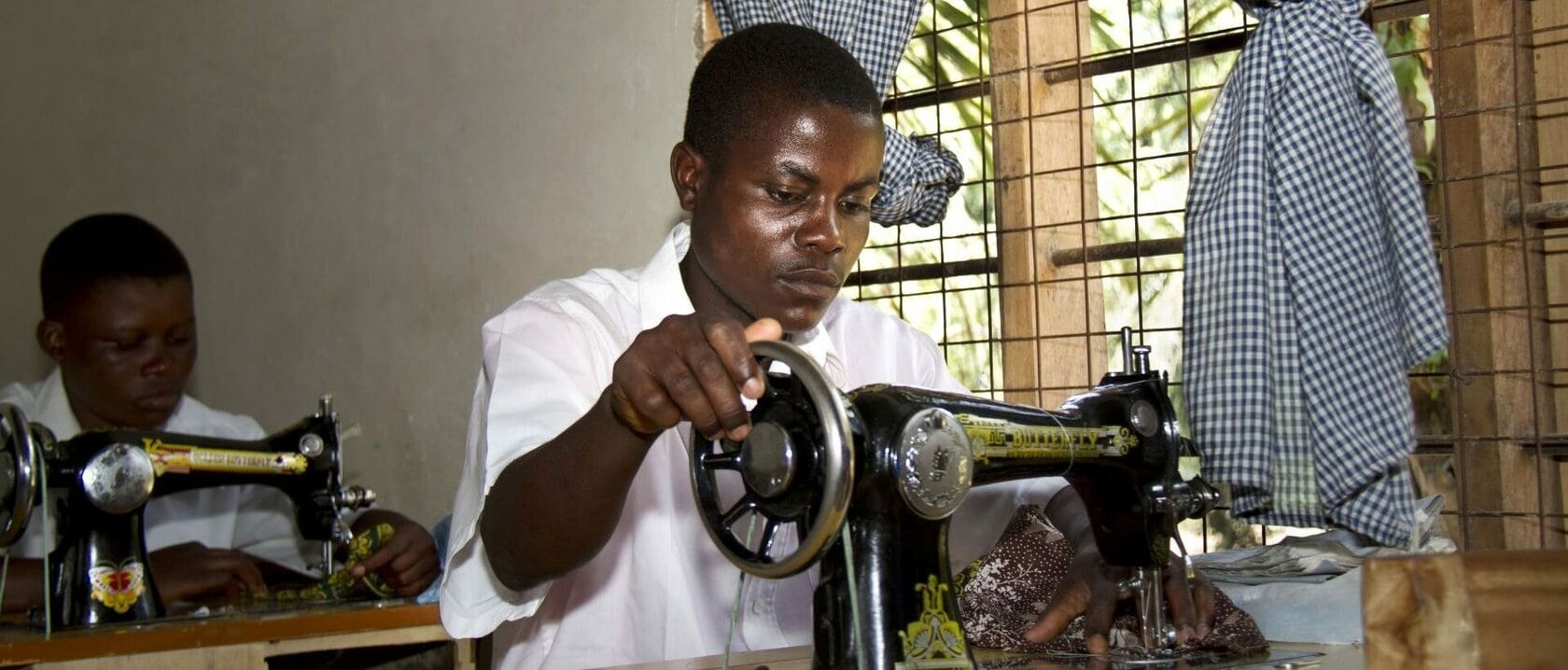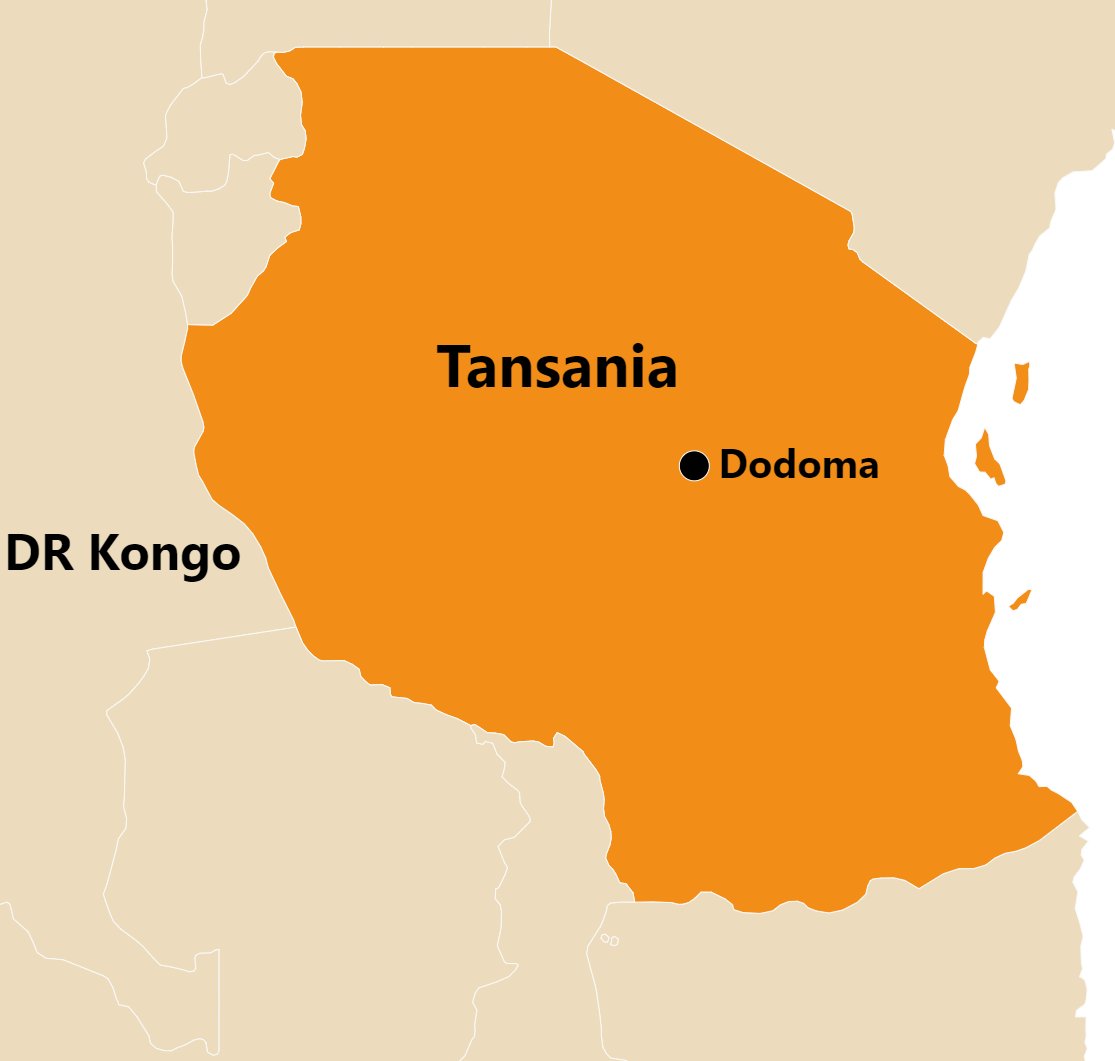
Adrienne Sweetman
Coordinator Tanzania

Project Number: 186.1503
Paid work and incomes that secure livelihoods are rare in Tanzania in view of the poor economic situation. Young people in particular suffer from a lack of prospects and unemployment. Many women have no opportunity for education or professional advancement. In many cases, they are trapped in traditional roles and have little say in society. People with disabilities are particularly disadvantaged, often stigmatized and excluded from educational opportunities. To address these issues, Mission 21's partner churches, the South and Southwest Provinces of the Moravian Church in Tanzania (MCT), are engaged in inclusive vocational training. Through education and also further training, vulnerable young people are given real opportunities to earn their own living and find a way out of poverty and dependency.
More than 60 percent of the Tanzanian population are children and young people under the age of 18. A large proportion grow up in poverty. Their educational opportunities and career prospects are limited, and their chances of leading an independent life are slim. The situation of many women is particularly problematic. Girls have to help in the household and in the fields from an early age. Only a few girls are able to complete secondary school. People with disabilities are also mostly excluded from education and social participation. Sometimes they are hidden away by their families. There is a lack of appropriate support. Mission 21's two partner organizations are committed to the education of young people, especially women and people with disabilities. In vocational training centers in Kyela, Chunya, Isongole and in the city of Mbeya, young people can complete vocational training. In addition to job-specific skills, they are also trained in life skills, violence and HIV prevention. Particularly vulnerable groups (e.g. young women, orphans or young people with disabilities) are supported with scholarships. Vulnerable young people are also supported outside of vocational schools so that they can become economically independent. Particular emphasis is placed on training in sustainable and ecological agricultural cultivation methods.
Overall Objectives:
The skills of particularly vulnerable youth are strengthened so that they can independently secure their livelihoods, lead independent lives with dignity, and actively contribute to society and the local economy.
Subgoals:
Young people, including orphans, as well as women and their families from the Mbeya region. Each year, the projects reach around 800 young people in the vocational schools and at least 500 young people in extracurricular courses. The target group also includes teachers at the training centers and training seminars.
In 2022, training at the vocational schools again helped to combat rising youth unemployment and poverty in the project region. There are now seven centers where young people can enjoy practical, high-quality and state-recognized training. This enables them to find employment after graduation or to work as self-employed persons and to support themselves. The same effect was achieved by the founding of a group of ten seamstresses in Rungwe, the "Pamoja Tunaweza". The group produces high-quality sewing work, which they sell at markets at home and abroad. As a result, the seamstresses earn an income that has significantly improved their standard of living. Together with the Christoffel Blind Mission (CBM), the vocational school in Kyela was rebuilt to be barrier-free and 60% of the teachers and administrative staff were trained in sign language. The construction of a new dormitory building for students was completed. There are already 30 students with physical disabilities studying in Kyela, for whom there are almost no educational opportunities in the region to date.

CHF 126'500
Mission 21
Protestant Mission Basel
PO Box 270
Missionsstrasse 21
4009 Basel, Switzerland
Tel.: +41 (0)61 260 21 20
info@mission-21.org
Donation account Switzerland:
IBAN: CH58 0900 0000 4072 6233 2
Tax exemption number:
CHE-105.706.527
Donation account Germany:
Savings Bank Lörrach-Rheinfelden
Swift BIC: SKLODE66
BLZ: 683 500 48
IBAN: DE39 6835 0048 0001 0323 33
Account No. : 1032333